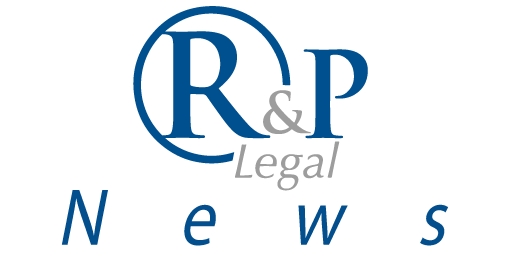Update | The EU introduces a global standard on ESG Due Diligence. A gamechanger for global supply chains?

On February 23 the European Commission published the long-awaited Directive proposal on Corporate Sustainability Due Diligence. This initiative is in line with the EU Green Deal and with the commitment to deliver on the UN Sustainable Development Goals, in order to promote more sustainable and resilient business activities, especially for companies operating through complex value chains.
Context
The proposal responds to an increasing demand for greater regulation of the ESG implications of global value chains, raised by civil society organisations, the private sector, EU member states and institutions. Following an initial impact assessment, the Commission conducted an open public consultation on sustainable corporate governance, according to which, the majority of respondents was in favour of the adoption of a legal instrument mandating ESG due diligence obligations.
Following this consultation, the EU Parliament approved a resolution of 10 March 2021 calling on the Commission to adopt a legal instrument on corporate due diligence and corporate accountability. The commitment to strengthen the legal framework on sustainable corporate governance was also reiterated in the Joint Declaration on EU Legislative Priorities for 2022, by the EU Parliament, the Council of the European Union and the Commission.
The introduction of a European legislation in this sphere does not only aim to ensure greater respect and protection of environmental and human rights in the context of business activities but it also aims to create legal certainty and a level playing field. Numerous member states have in fact adopted or considered the adoption of national laws on human rights due diligence, starting from the 2017 French Duty of Vigilance Law.
The Proposal
Scope
SMEs have been excluded from the scope of application. The proposal only applies to larger companies (including regulated financial undertakings) and namely to:
- Companies established in the EU:
- with more than 500 employees (including part-time employees and temporary agent workers) and a net worldwide turnover of more than EUR 150 million;
- with more than 250 employees and a net worldwide turnover of more than EUR 40 million, provided that at least 50% of this net turnover was generated in one or more high-risk sectors identified by the proposal (e.g. textile, agriculture, extraction of minerals).
- Companies established outside of the EU, as long as the following conditions are satisfied:
- they have generated a net turnover of more than EUR 150 million in the Union;
- they have generated a net turnover of less than 150 million but more than EUR 40 million in the Union, provided that at least 50% of its net worldwide turnover was generated in one or more of the high-risk sectors (identified by the proposal).
Obligations
The proposal introduces a horizontal obligation for the companies listed above to carry out a due diligence on potential and actual adverse impacts on human rights and the environment “with respect to their own operations, the operations of their subsidiaries, and the value chain operations carried out by entities with whom the company has an established business relationship”.
Due Diligence
The Directive proposal provides for a definition of human rights and environmental due diligence consistent with international standards, such as the United Nations Guiding Principles on Business and Human Rights (UNGPs), the OECD Guidelines for Multinational Enterprises and the OECD Due Diligence Guidance for Responsible Business Conduct. In particular, the following actions are required:
- the integration of due diligence in corporate policies;
- the identification of the actual or potential adverse impacts on environmental and human rights;
- the adoption of measures aimed at preventing and mitigating the potential adverse impacts;
- the establishment of complaints procedures;
- an ongoing monitoring of the effectiveness of due diligence policies and measures;
- a public communication regarding the due diligence activities.
Prevention and minimisation of adverse impacts
In their attempt to prevent and minimise their adverse impact on human rights and the environment, companies would also be expected to implement a prevention action plan in which they could clarify a timeline of actions, with qualitative and quantitative indicators to measure improvement.
They will also need to make sure, through contractual clauses, that their business partners will comply with their code of conduct and prevention action plan and will need to seek that their business partners apply similar contractual provisions in their business relationships (contractual cascading). Compliance with the contractual provisions shall be ensured through third-party verification.
If the adverse impact cannot be minimised, companies can impose a temporary suspension of the business relationship and, if there is no reasonable expectation that the risks of adverse impacts can be minimised in the short term, the contractual relationship should be terminated.
SMEs
It is interesting to note that, even though SMEs will not be subject to direct due direct diligence obligations, their business partners could impose on them contractual provisions according to which they will need to comply with preventive and remedial measures. In this context, the Directive proposal mandates that the contractual provisions negotiated with SMEs should be fair, reasonable and non-discriminatory. In these circumstances, companies should bear the costs of the third-party verification of compliance with contractual provisions.
Companies’ complaints procedure
Companies are expected to set up internal procedures to deal with complaints regarding actual or potential adverse impacts on human rights and the environment, raised by the following actors:
- persons who are affected or have reasonable grounds to believe that they might be negatively affected;
- trade unions and other workers’ representatives representing individuals working in the value chain concerned;
- civil society organisations active in the areas related to the value chain concerned.
These internal procedures should grant stakeholders the possibility to discuss with companies the actual or potential adverse impacts and should envisage transparent and clear follow-up activities.
Controls and Sanctions
Member States will need to designate one or more national supervisory authorities responsible for ensuring compliance with the due diligence obligations. They will need to have adequate power and resources, including:
- to carry out investigations and request information;
- to order the cessation of violations;
- to impose interim measures to avoid irreparable harm;
- to impose remedial actions;
- to impose pecuniary sanctions, based on companies’ turnover.
Investigations can be initiated by supervisory authorities on their own initiative, or as a result of substantiated concerns raised by natural and legal persons, when they have reasons to believe that a company is failing to comply with the due diligence obligations.
Civil Liability
The Directive proposal clarifies that companies should be subject to civil liability when they fail to comply with due diligence obligations and this failure leads to adverse human rights or environmental impacts and damages.
Companies may be exempt from liability in case of adverse impacts arising as a result of an indirect partner with whom there is an established business relationship if:
- they have introduced contractual provisions regarding the compliance with their code of conduct and prevention plan and have requested their business partners to mandate similar obligations in their business relationships;
- compliance with contractual provisions was verified.
The exemption does not apply if it was unreasonable to believe that these measures were sufficient “to prevent, mitigate, bring to an end or minimise the extent of the adverse impact”.
Climate Change
Companies will be expected to adopt a plan to ensure that their business model and strategy is in line with the Paris Agreement and with the objective of limiting global warming to 1.5 °C. This plan should also identify the extent to which climate change could impact company’s operations. In case climate change is identified as a principal risk for company’s operations, the company should also include a plan with emissions reduction objectives. When directors’ variable remuneration is linked to their contribution to the company business strategy and the long-term interests and sustainability of the company, this should also be aligned with the objectives of limiting climate risks.
Directors’ duties and incentives
Member States are expected to introduce specific provisions integrating the existing duty of care of directors to act in the best interest of the company, in order to take into account the consequences of their decisions for sustainability (including on climate change). Directors will also be expected:
- to put in place and oversee human rights and environmental due diligence through the adoption of due diligence policies and the engagement with stakeholders;
- to adapt the corporate strategy to embed human rights and environmental due diligence.
Next Steps
The Directive proposal will now need to be discussed by the European Parliament and the Council of the European Union. Once adopted, Member States will need to transpose it into national provisions:
- within 2 years from the entry into force:
- for companies based in the EU with more than 500 employees and a net worldwide turnover of more than EUR 150 million; and
- companies based outside of the EU with a net turnover of more than EUR 150 million in the Union;
- within 4 years from the entry into force:
- for companies based in the EU with more than 250 employees, with a net worldwide turnover of more than EUR 40 million (provided that at least 50% of this net turnover was generated in the high-risk sectors identified by the proposal); and
- companies based outside of the EU with a net turnover of more than EUR 40 million in the Union, provided that at least 50% of its net worldwide turnover was generated in the high-risk sectors identified by the proposal).





